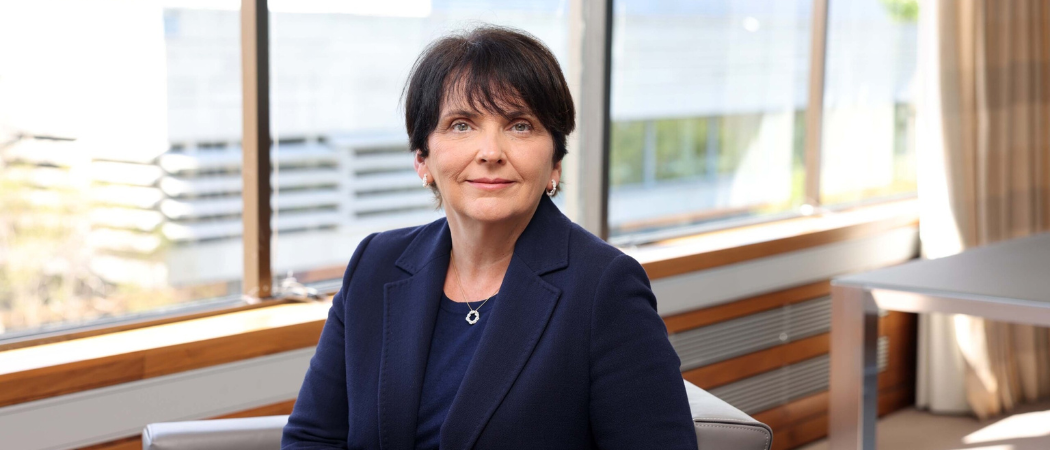Research-intensive universities face increasing disruption, threatening to undermine the benefits they bring to society and the economy in Europe and beyond

Orla Feely, president of University College Dublin and president of the CESAER university association. Photo credits: University College Dublin
This is a time of extraordinary disruption around the world, in many different ways. A number of the disruptors have particular relevance to higher education and research.
Demographics The dramatic fall in birth rates in most countries signals a looming demographic upheaval for higher education. There are also distinctive attributes associated with the current generation of college-goers that affect their approach to their studies. Part-time work, long commutes and mental health struggles are a reality for many. Those entering university from school today and for most of the coming decade have had their primary or secondary education significantly disrupted by the COVID-19 pandemic. They have grown up immersed in screens and social media. The ways in which they interact and apply their attention, and their expectations around teaching and learning, often differ markedly from previous generations.
Deglobalisation Universities are global institutions that rely for their intellectual and cultural vitality, and often for their financial health, on the mobility of people and ideas. This is now under challenge in many systems, as we move away from the goals of “open innovation, open science and open to the world” laid out a decade ago by Carlos Moedas, then European commissioner for research. A sharpened focus on industrial competitiveness alters national expectations of higher education and of research. Another D-word, defence, is rapidly advancing up the agenda of many countries, with implications for the funding and the nature of research.
Digitalisation The impacts of digital technologies in general and of artificial intelligence in particular on teaching, learning and assessment, on research and innovation, and on the ways in which large and complex institutions such as universities manage their operations are profound. Their unfolding impacts on the world of work, on societies and on how we live and think are potentially enormous, with universities having a very important role to play in our collective response.
Deficits Many universities are encountering significant financial difficulties, often necessitating dramatic cost-cutting measures or even threatening the continued independent existence of institutions. Internal cross-subsidisations that were accepted in more benign times are now the subject of greater scrutiny. Financial pressures on governments on the one hand and on prospective students and their families on the other are also key drivers.
Distrust In line with a broader reduction in trust in experts across society, universities no longer occupy the trusted position that they once did. They are often accused of remoteness or even divergence from the communities they serve. In broad terms, their social license to operate is under challenge. With this decline in trust, compliance requirements have mushroomed, with implications for the ways in which universities manage their complex set of activities.
Division Issues of deep division and anger across society have manifested themselves on campuses with fervent intensity. In some contexts, the activities and values of universities themselves have become the focus of highly polarised societal debates or so-called culture wars. The balance between institutional commitment to the open exchange of views and to dignity and respect is often fraught.
Not all universities are experiencing these disruptors to the same extent, but all are experiencing some combination of them, and some are facing a confluence that threatens them in unprecedented ways.
It is tempting in challenging times to hanker after some, often imagined, past golden age. It is still valid, though, to see the emergence, growth and global adoption of the modern research-intensive university model, beginning in the U S after the Second World War, as a transformation of extraordinary power and impact.
At its best, this model has been characterised by a synergy between higher education and research, and the vibrant engagement of both with the needs of the world around them; by the widening of access to higher education and the opportunities it can provide; by relatively hands-off competitive research funding of a level and nature that can support major breakthroughs; by global collaboration as a driver of progress; and by academic freedom, autonomy and ambition.
The benefits have been seen around the world in the expansion of knowledge, the creation of new industries and new technologies, advances in healthcare and lifespan, the development of skilled workforces, societal and cultural advances, the active involvement of universities as anchor institutions within communities and in the flourishing of individual graduates.
There is much at stake if the current disruptions to institutions and systems of higher education and research threaten their continued health and the positive impacts that they deliver. To address this successfully will require first of all an understanding of what might be lost. It then requires a commitment to deliver solutions, the capacity for change, and the ability to drive, communicate and build broad support for the many ways in which engaged higher education and research make a transformative difference to the world.
Orla Feely is president of University College Dublin and president of the CESAER university association.





 A unique international forum for public research organisations and companies to connect their external engagement with strategic interests around their R&D system.
A unique international forum for public research organisations and companies to connect their external engagement with strategic interests around their R&D system.